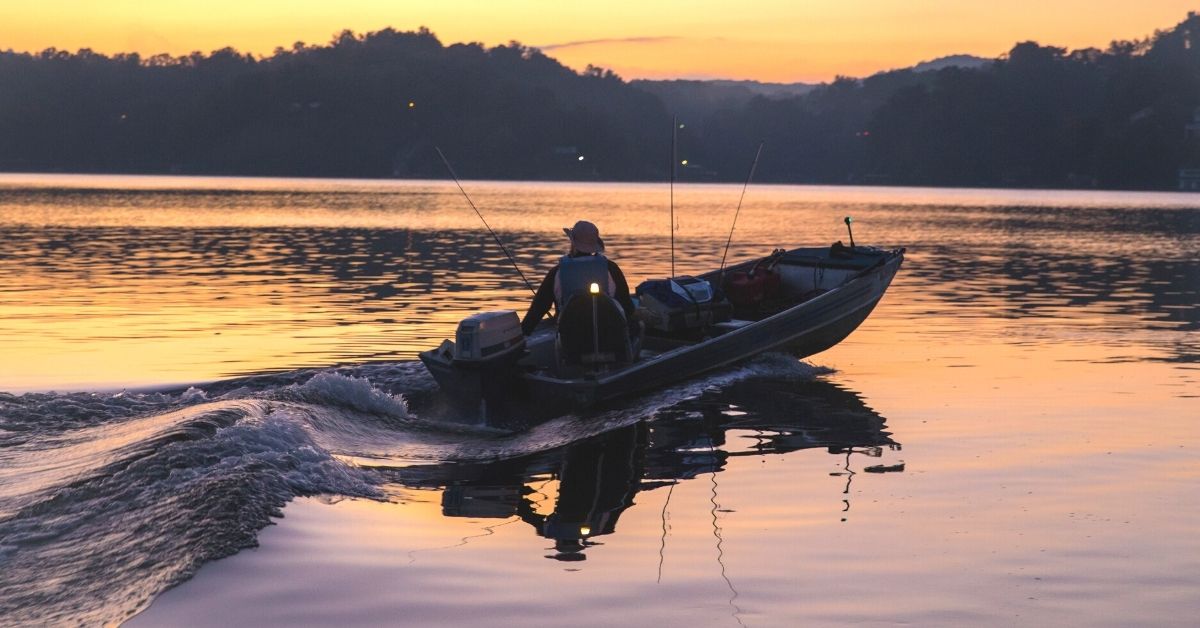
By BoatUS Foundation
Photos by Meghan Marchetti/DWR
For most boaters, the first few warm days of spring get you thinking about pulling the cover off the boat and dusting off your fishing tackle to make that first shakedown trip of the season. After months of winter, people are going to be lining up at ramps.
But with all of the new boaters, and people excited to get their season started, it’s easy to overlook some safety aspects of early season boating, especially when making those first few trips solo.
Planning
Here in the Mid-Atlantic, air temperatures will touch 70 degrees in April, and we may hit 80 degrees in May. With spring blooming and warm temperatures it’s easy to forget that the water is likely still in the 40s or low 50s. This shouldn’t prevent you from getting out on the water, but should play a part in how you plan for your trip. Here are a few tips to consider if you are giving in to the itch to get out there as soon as possible.
- File a float plan or, at the very least, let a friend or family member know where you are headed and when you expect to return. (Pro-Tip: Share your location through your phone’s menu with a family member or trusted friend.)
- Keep life jackets on board, but throw on an inflatable life jacket when you get to the boat. (Pro-Tip: belt pack inflatables are slim and low profile. I’ll often get in the car still wearing it after a day on the water)
- Bring your cellphone but always pack the VHF radio. A VHF radio is the most reliable way to communicate on the water. Make sure you get an MMSI number from www.boatus.com/mmsi (Pro tip: fixed mount are great, but carrying a portable as well has a lot of advantages.)
- Dress in layers and for the water temperature—if you have mechanical issues or you end up in the water, long-sleeved clothes and the HELP position (Heat Escape Lessening Posture) will help you retain body heat.
- Bring water and snacks—these are great to have for a regular day on the water, but if you encounter issues and need to wait for help to arrive, you will want to stay hydrated and have calories available
- Bring a jump pack—many manufacturers make compact, lithium ion jump packs to assist in getting the engine started in the case of a dead or sluggish battery. (Pro tip: buy a battery jump pack with USB capabilities. This way if you have a dead battery or a dead phone, you can still reach out for help.)
New Regulations
A new law mandates engine cut-off device use on federally controlled waterways. Even though you are legally required to wear this device, it has always been an easy way to add a layer of safety to your routine, especially boaters who are on the water alone. Being ejected from a boat is traumatic, but watching that boat motor away, or even worse, begin circling you, intensifies the situation tenfold. Clip it on to your life jacket, belt loop or anywhere else that is convenient. A number of manufacturers also make wireless devices that are easy to wear and are less prone to being accidentally pulled.
Have Fun!
Getting out on the water for the first time, every year, is all about fun and relaxation. Whether you are by yourself, or with friends and family, boating is about making memories. Carefully planning for the unexpected can help keep your time on the water less frustrating, more safe and more enjoyable.


